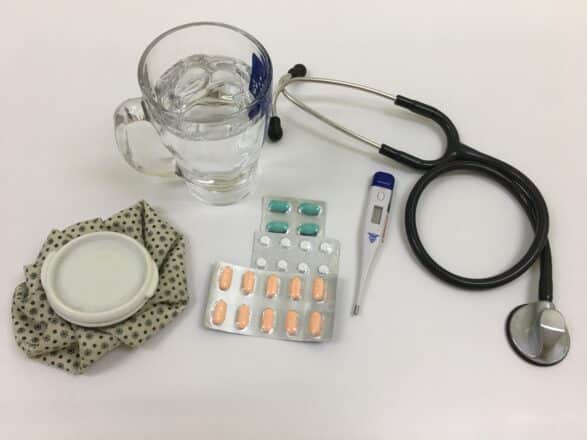As you navigate through the world of medicines, both over-the-counter and prescribed, it’s incredibly vital that you consider the potential side effects that come along. The article “Understanding Side Effects: The Unwanted Consequences of Taking Medicines,” lays this out quite aptly. This not-to-miss read proposes that the chances of adverse effects can be particularly higher for older adults who take multiple medicines. It emphasizes the importance of not mixing medications without expert advice, sharing complete medication details before starting a new medicine, and engaging in regular conversations with your healthcare provider about your current medicine use. Furthermore, the article highlights the need to understand prescription labels, adjust medicine routines during travel, and keep track of all medications especially for the elderly. Here, you will also obtain a better understanding of the often confusing realm of generic and brand names of medicines, and the unpleasant, sometimes life-threatening, symptoms that they might cause, known as side effects. So, ready to gain knowledge that might be a lifesaver?
Understanding Medications and Their Purpose
Medications play a crucial role in maintaining good health, managing diseases, and achieving balanced well-being. They come in two primary types: Over-the-Counter (OTC) and prescription medicines.
Distinguishing between OTC and prescription medicines
OTC medications are readily available and can be bought without a prescription, while prescription medicines require a doctor’s order because they are intended to treat specific conditions and should be used only under a physician’s guidance. Understanding the distinction between these two can help keep you safe and ensure efficient treatment.
How medicines work to treat diseases
Medicines work in diverse ways to control or treat illnesses. Some drugs kill harmful bacteria or viruses, while others fortify the body’s immune system. Some medications can replace missing substances in the body, like insulin, or control processes in the body, such as cholesterol levels. Being aware of how your medications work helps you understand their purpose and encourages medication adherence.
Potential Risks Associated with Medicine Consumption
Though medications can bring benefits, every medicine carries some risk.
Increased risks for older adults taking multiple medicines
One significant concern is polypharmacy, the simultaneous use of multiple drugs, most common among older adults. This can increase the risk of adverse effects, like drug interactions or overdose.
Dangers associated with mixing medicines
Additionally, mixing medicines without professional guidance can also be dangerous. Some medications may intensify or counteract the effects of others, leading to unpredictable outcomes. Therefore, medical approval should be obtained before introducing any new medication into your regimen.

The Importance of Open Communication with Healthcare Providers
Communication with your healthcare providers is key to maximizing the benefits and minimizing the risks of medication usage.
Information to furnish to healthcare providers before starting a new medicine
Before starting a new medicine, you should provide a comprehensive list of all other medicines you are taking to your health care provider. This allows them to predict possible drug interactions, adjust dosages, and tailor the treatment to your specific needs.
The importance of regular medication reviews with healthcare providers
Regular reviews with your healthcare provider about your current medicine usage are advisable. This allows them to assess the ongoing effectiveness of the treatment, monitor any side effects and adjust as needed.
Reading and Following Prescription Labels
Misunderstanding or ignoring prescription labels can lead to medication errors, like over or underdosing.
Understanding prescription labels
Prescription labels provide essential instructions on how to take the medication. They typically include the drug’s name, dosage, frequency, side effects, and storage information. Make sure to read and understand these labels carefully.
Implications of not following instructions on prescription labels
Not following these instructions can lessen the drug’s effectiveness, cause unwanted side effects, or even lead to a life-threatening situation. Always adhere strictly to your prescription instructions for optimal results.

Adjustments to Medication Regimen While Traveling
Traveling can sometimes complicate the process of taking medication.
Realigning medicine schedule with changing time zones
With shifting time zones, you’ll need to adjust your medicine schedule to maintain its effectiveness.
Balancing medicines with different routines and diets while traveling
Furthermore, changes in routines and diets can affect how your body reacts to the medication. It’s crucial to plan ahead to maintain a consistent medication regimen while traveling.
Identifying and Managing Side Effects
Understanding side effects can help predict, prevent, and manage unwanted responses to medications.
Definition of side effects
Side effects are undesired symptoms or feelings that happen when you take medicine. Everyone’s experience with side effects can vary, which is why it’s essential to monitor your own response.
Range of possible side effects from minor to severe
Side effects can range from minor, like a temporary headache, to severe, such as life-threatening allergic reactions. Monitoring and promptly reporting these can save you from potential harm.
Generic versus Brand Name Medicines
Understanding the distinctions between these two types of medicines can help you make informed decisions.
Differences and similarities between generic and brand name medicines
Generic and brand name medicines are essentially the same in purpose, dosage, safety, strength, and how they work. The primary difference lies in their pricing, where generics are often cheaper.
Effectiveness, strength, and quality comparison between generic and brand name medicines
Both brand name and generic medicines must adhere to the same quality standards and guidelines, meaning they provide the same health benefits. You and your provider can decide which type best meets your needs.
Challenges in Medicine Management for the Elderly
Managing medicines can pose particular difficulties for older adults.
Common challenges faced by elderly individuals in managing medicines
Challenges can stem from handling multiple medications, memory problems, or difficulties in opening medication bottles. Additionally, the elderly may have a harder time recognizing and dealing with side effects.
Recommendations for aiding elderly in the administration of medicines
To aid this demographic, it’s advisable to maintain a list of all medicines taken, including dosage and timing. Pill organizers, automatic pill dispensers, and medication reminder apps can also be beneficial.
Necessary Precautions to Minimize Risks
There are multiple strategies to minimize medication risks.
Tips to avoid hazardous medicine interactions
These include always informing your healthcare provider about all medicines you take, including OTC drugs and supplements. Ask your provider or pharmacist about potential interactions and follow their advice strictly.
Recommended safety measures in medicine consumption
Taking safety measures like reading labels, sticking to prescribed doses, and routinely reviewing your medications can help avoid potential hazards associated with medication usage.
Empowering Patients Through Knowledge and Awareness
By fostering knowledge and awareness about medications, patients can become empowered participants in their healthcare.
The value of being an informed patient
Being an informed patient allows you to make conscious decisions about your health and medication usage, leading to better adherence and improved outcomes.
How increased knowledge about medicines can minimize potential risks
The more you know about your medicines, the better you can identify potential risks and work with your healthcare provider to manage them. Learn about your medicines, ask questions, and be proactive to ensure your medicine works for you in the best way possible.

